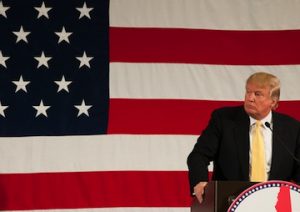Bill Raspberry, ‘Role Model’
William Raspberry was a provocateur who was so gentle and gentlemanly that you didn't always grasp how much he was shaking up the conventional conversation until you actually thought about what he had just said.AUSTIN, Texas — William Raspberry was a provocateur who was so gentle and gentlemanly that you didn’t always grasp how much he was shaking up the conventional conversation until you actually thought about what he had just said. He was so open to the views of others that it was easy to miss that his convictions were as hard as steel.
The columnist, who died Tuesday at the age of 76, was a legend, yet he never acted like the truly famous person and breakthrough figure he was. Pomposity was, in his mind, one of the gravest sins.
Although he was a teacher to all who cared to listen, he always gave the impression that he was the one learning from everybody else. He cared profoundly about morality, and particularly parental responsibility, but his moral lessons often came surrounded by chuckles and laughter. They were no less serious for that.
Raspberry’s importance to journalism will be measured in different ways. The headlines will focus on the fact that he was one of the first widely syndicated African-American columnists. He really was a pioneer and a “role model,” a phrase he used seriously sometimes but usually poked fun at it as one of those expressions that loses its meaning from overuse.
It will be noted that he was a staunch advocate of civil rights who could also pick fights with what gets referred to as “the civil rights establishment.” He was an advocate of civility who practiced it. He often used his columns to float the interesting ideas of others, even when they were ideas he was not yet sure he fully agreed with. If the thoughts or plans or proposals struck him as interesting, he wanted his readers to know about them.
Because Raspberry did not meet the stereotypes of what a “black commentator” is supposed to say in every single column, he was sometimes characterized as a conservative. But since when does caring about family, parenting and education automatically make you a “conservative”? Where is it written that an African-American columnist is required to say that racism is the one and only explanation for the challenges facing African-Americans?
Raspberry simply had a passion for justice, especially where poor children were concerned. It was a passion that refused to be contained by ideological boxes or by the expectations of others about what he was supposed to be writing.
And if Raspberry were not African-American, the memorialists and obituary writers might be talking a lot more about his brave and consistent opposition to the Iraq War, from the very beginning. He was a rare figure in the world of commentary at that time. His questions about why were going to war were both basic and sophisticated, rooted in the common sense that characterized all his work. “Aren’t we old enough,” he asked during a discussion on PBS’ “The News Hour,” “to be a little suspicious of governments that tell us, ‘we know this stuff but we can’t tell you’?” Apparently we weren’t.
I was one of so many people at The Washington Post who could never resist Bill’s open door and never wanted to resist conversation with him. We talked a lot about kids and their need for love, nurture and discipline. It was a natural enough subject because I had become a new father around the time I got to know Bill well, and he was the right man to turn to for guidance. His insistence on the importance of parenting and education came naturally, and it was a form of gratitude.
Raspberry’s parents, James and Willie Mae Tucker Raspberry, were legendary educators in Okolona, Miss., who had opened the gates of opportunity to hundreds of African-American kids in an environment that regularly shut doors in their faces.
Raspberry was always unrestrained in his expressions of love and admiration for his parents, and he wrote about his father this way in a 1991 column:
“He was no tinhorn saint — just a good man in every sense of that phrase. … He had the wonderful gift of knowing what was needed to make the difference: the subtle sermon that made each person in the congregation think he was talking directly to him or her, the private counsel or the special moments that my generation calls ‘quality time.'”
Raspberry more than lived up to his father’s example. He, too, had a gift for the “subtle sermon,” and he was always speaking directly, to all of us.
E.J. Dionne’s e-mail address is ejdionne(at)washpost.com.
© 2012, Washington Post Writers Group
Your support matters…Independent journalism is under threat and overshadowed by heavily funded mainstream media.
You can help level the playing field. Become a member.
Your tax-deductible contribution keeps us digging beneath the headlines to give you thought-provoking, investigative reporting and analysis that unearths what's really happening- without compromise.
Give today to support our courageous, independent journalists.






You need to be a supporter to comment.
There are currently no responses to this article.
Be the first to respond.